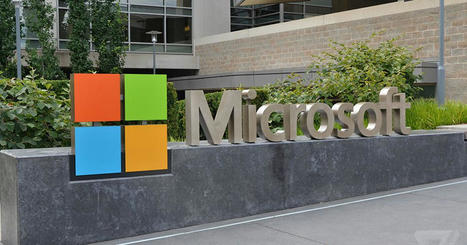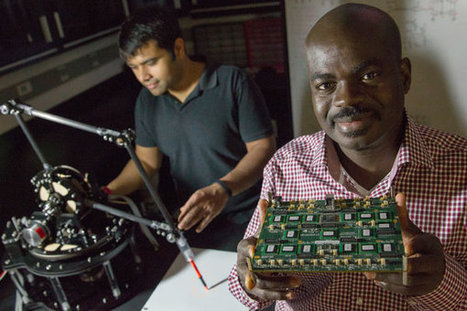Inspirational futurist Gerd Leonhard delivered a compelling, challenging, and at times chilling glimpse into a possible near future dominated by data, digital dependence and dramatic sociological changes. Over the next ten years, human to machine interfaces will take us far beyond connected fridges, self-parking cars and intelligent wristwatches -- and at an unbelievable pace, as real life begins to outstrip fiction. Artificial intelligence will augment our bodies and extend our personalities into devices as chips as small as 5 nanometres across become fast, cheap and embedded in everything. This is the new version of the internet: the internet of everything with up to 100bn connected devices. We will be living inside a computer -- and our mobile phones will function as an external brain.
Future interfaces will lead to prediction markets, the quantified self, unprecedented access to huge amounts of information, moving from typing to gesturing to going inside a device to pull out data. We can already operate Google glass by blinking -- in the future, thinking will be enough. Used responsibly, this can bring unprecedented benefits, increased efficiency, vastly more comfortable and convenient lifestyles. But there is an equally huge associated risk, as well as the danger of unintended consequences in an age of exponential expansion in connectivity. One simple example is how by leapfrogging over television to YouTube in Indonesia has changed society, changed how people behave, act and think as they have become "more transparent, more digitally naked."
And those risks are nowhere more evident than in the downsides of Big Data. An economy of data, worth up to 15 trillion dollars in new commerce and activities, could trigger #datawars over the power than massive money puts in play -- and pollution in the form of surveillance, lack of trust and flawed privacy. Privacy and security failure is the present as "the power of technology exceeds the scope of ethics". Cloud computing, big data, scanning technologies and other new technologies are running our lives in a deep way. Recent world events make it clear that capturing pretty much everything is technically possible -- yes, we scan, as Gerd punned. And growing awareness of that is set to cost the US, as international companies -- and even countries -- consider putting their clouds, and their business, elsewhere.
Privacy will be the domain of the rich, able to afford encrpyted email and to opt out of permanent surveillance and intrusion. Privacy and trust have been eroded to the extent that police scanning the number plates of passing cars keep that information for up to five years; or bluetooth-enabled rubbish bins connect with mobiles to register anyone walking past. It's all possible; but being able to do it doesn't mean it should be done. Artificial intelligence, M2M communication, the Internet of Things -- none of this might happen unless we can forge new social contracts, ethics, a rule of law that makes us feel safe and lets us work. So what will be important for the industry in this future reality that is already upon us? Trust and ethics are key, according to Gerd. Without establishing a trust framework, no one will survive the next five years. Sector convergence and consumer power are shaping the market. People need to be given control, government laws on copyright and payment must be abandoned. "Forcing people to pay is like forcing people to love. It won't work" -- they will simply migrate to free and more. And telcos are no longer operating in a clear-cut sector, but are instead competing in an arena made of many, and often new, players.
Via
Szabolcs Kósa



 Your new post is loading...
Your new post is loading...














Microsoft is buying AI speech tech firm Nuance for $19.7 billion, bolstering the Redmond, Washington-based tech giant’s prowess in voice recognition and giving it further leverage in the health care market, where Nuance sells many products. Microsoft will pay $56 per share for Nuance, a 23 percent premium over the company’s closing price last Friday.
Nuance is best known for its Dragon software, which uses deep learning to transcribe speech and improves its accuracy over time by adapting to a user’s voice. Nuance has licensed this tech for many services and applications, including, most famously, Apple’s digital assistant Siri. (Though to what degree Siri currently relies on Dragon to answer users’ queries is unclear.) Dragon is an industry leader in terms of transcription accuracy.
The $19.7 billion acquisition of Nuance is Microsoft’s second-largest behind its purchase of LinkedIn in 2016 for $26 billion. It comes at a time when speech tech is improving rapidly, thanks to the deep learning boom in AI, and there are simultaneously more opportunities for its use.
Learn more / En savoir plus / Mehr erfahren:
https://www.scoop.it/t/21st-century-innovative-technologies-and-developments/?&tag=Acquisitions